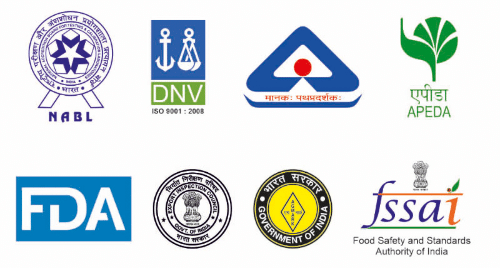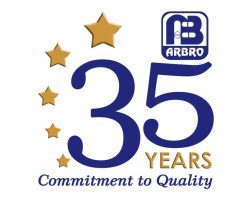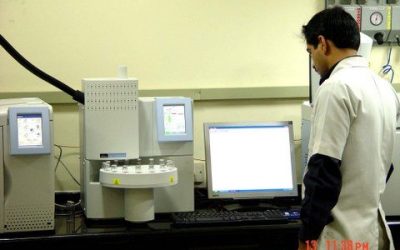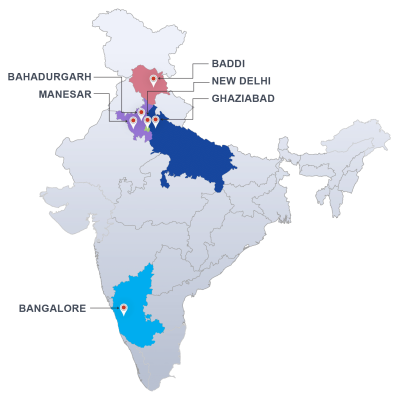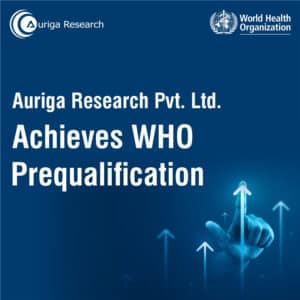Accreditations and approvals are the pillars of your businesses strength. It is essential for ensuring quality and consistent improvement in services to maintain the standards and trust of consumers. Accreditation is a process by which an independent and authorized agency accredits the quality system and competence of a laboratory on the basis of certain predefined standards. It is usually done at regular intervals to ensure maintenance, standards and reliability of results.
Significance of Approvals
- It facilitates the implementation and maintenance of an effective quality system.
- Give confidence to users and laboratories in availing services and results generated.
- It safeguards the laboratory against any legal dispute pertaining to test results.
- Helps to stand at par in a competitive market.
- Save money on retesting as you get the accurate and standardized results which will avoid the cost of retesting.
- When you know your products are tested by an authorized laboratory the chances of any loophole reduces to a great extent as the cost of retesting and repairs increases the prices of services and products.
- Accreditations and approvals give authenticity to your business and ensure accuracy and quality. This altogether retains the customers moreover; it also increases profits by adding more clients in your list.
- When your products or services are of utmost quality and accredited by National and International bodies you tend to make your mark globally.
A quick look at our accreditations and approvals;
Directorate of ISM & H (AYUSH) since 2004
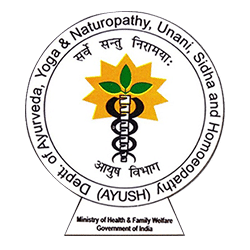
A glimpse at herbal testing services offered by us for the safety and efficacy of herbal products to ensure regulatory requirements;
- Regulatory Consultation for Registration in Export Markets.
- Regulatory Dossier Development
- Product Development.
- Clinical Trials
- Developing process control and product specifications (COA)
- Process Validation
- Analytical Method Development
- Stability Studies, Including Sample Storage and Analysis
- Fingerprinting Studies on HPTLC, HPLC, GC, GC MS, and LCMSMS.
- DNA-based Identification Using PCR, Real-Time PCR, RAPD and Sequencing.
- DNA Fingerprinting
Our testing services;
- Various Marker Compounds
- Heavy Metals Using ICP MS or AAS
- Microbial Limits and Pathogens
- Pesticide Residues
- Aflatoxins
- Preservative Content
- Non-GMO Certification
- Veterinary Drug Residues
- Nutritional Labelling
- Physico-chemical Parameters
- Pharmacopoeial analysis of crude drugs and classical formulations for compliance to Ayurvedic pharmacopoeia
National Accreditation Board for Testing and Calibration Laboratories ISO/IEC 17025:2017
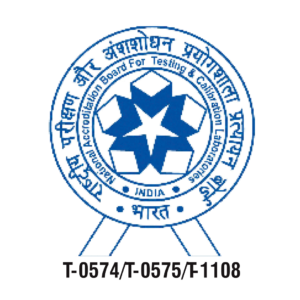
ISO/IEC 17025 accreditation provides the assurance that calibration and testing laboratories are delivering good services, and consistent data. The accreditation body is responsible for assessing the quality system and technical aspects of the system to determine compliance to the requirements of ISO/IEC 17025.
ISO 9001: 2015
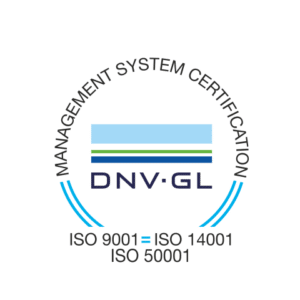
Food Safety and Standards Authority of India (FSSAI) since 2012
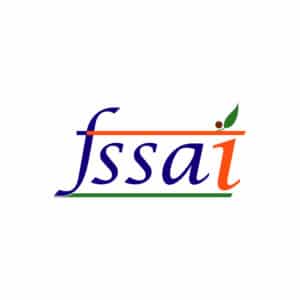
Dept. of Scientific and Industrial Research (DSIR) Recognized R&D Center since 1990
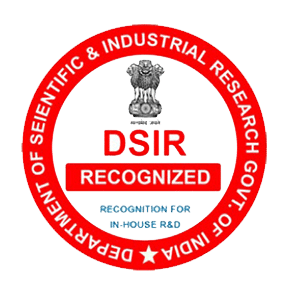
BIS Lab Recognition Scheme 2018
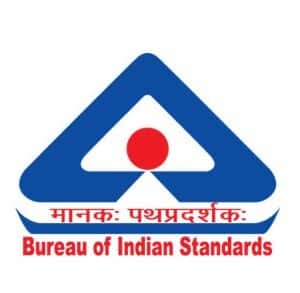
The Bureau of Indian Standards (BIS), is the National Standards Body of India, and is a leader in all matters concerning Standardization, Certification, and Quality.
BIS is responsible for the quality check of various products and services so as to safeguard consumers from several health and safety hazards. The BIS recognition under Laboratory Recognition Scheme is a badge of honor for our testing labs and a responsibility and commitment to provide testing services that enhance the value of all products that we test and analyze in our laboratory.
Drugs Control Dept. NCT, Delhi for BE study since 2007
Approval to conduct BE studies
Our laboratory in New Delhi holds approval on Form 37 granted for carrying out tests on Drugs/Cosmetics and Raw materials used in the manufacture on behalf of licences for manufacture for sale of drugs/Cosmetics or an individual or organization or procurement agency under the provision of Drugs and Cosmetics Act 1940 .
NPRA Ministry of Health, Malaysia since 2015
We have NPRA for our facilities in New Delhi and Manesar. It is valid up to September 22. They approved our bioequivalence centre to conduct BE studies. Our reports will be acceptable to 32 countries. It is regulatory body accreditation and it will come under International accreditation.
ISO 9001.2015 accredited since 1998
ISO 9001:2015 specifies requirements for a quality management system for an organization to consistently provide products and services that meet customer and applicable statutory and regulatory requirements, and to enhance customer satisfaction through the effective application of the system, including processes for improvement of the system and the assurance of conformity to customer and applicable statutory and regulatory requirements.
We have received a management system certificate that conforms to the Quality Management System standard. The certificate is valid for the scope of Manufacture and marketing of formulations medicine, Analytical and testing services for pharmaceuticals and Cosmetics, personal healthcare products, food and agricultural products, edible oil and fats.
For any query you can Contact us or fill out our Query form, call us now on +91-8588851888 or drop an e-mail to [email protected]. We will be happy to provide you with a proposal for your testing requirements.


